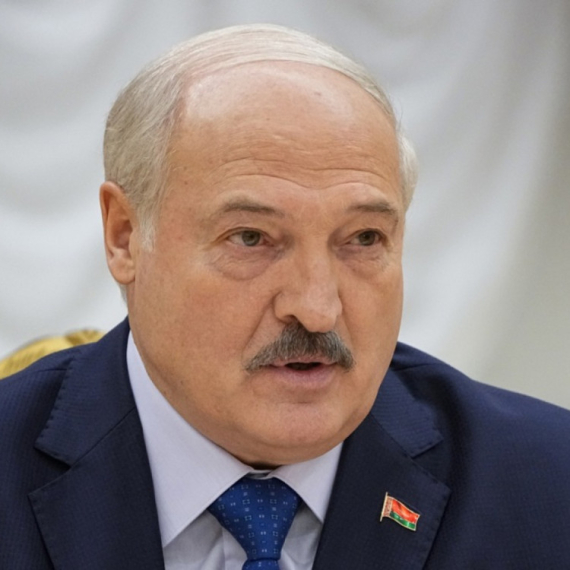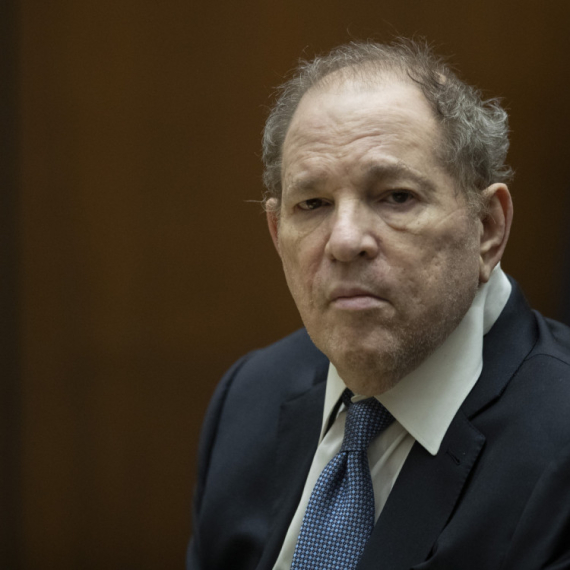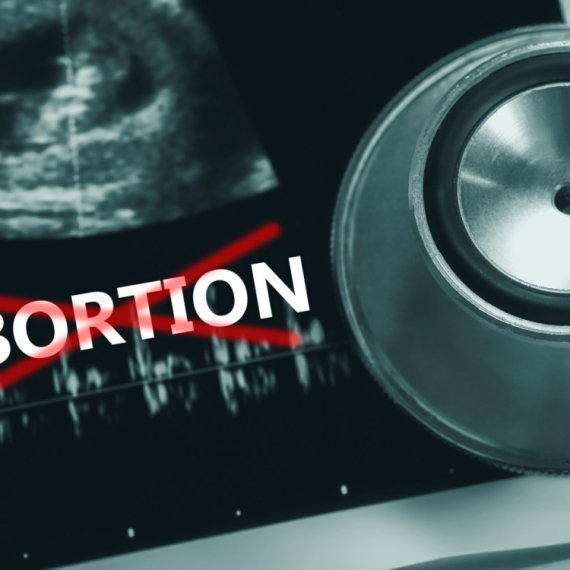Hungary PM under fire over austerity measures
Ferenc Gyurcsany is feeling the heat on the economic front with growth at its slowest pace in over a decade.
Sunday, 16.09.2007.
10:08

Ferenc Gyurcsany is feeling the heat on the economic front with growth at its slowest pace in over a decade. With gross domestic product (GDP) expanding by only 1.2 percent in the second quarter of this year, Hungary is lagging way behind its neighbors who joined the European Union at the same time in 2004. Hungary PM under fire over austerity measures Slovakia, for example, notched up growth of 9.4 percent in the period from April to June. Hungary's tepid performance is a result of the belt-tightening measures that the government prescribed to help rein in a public deficit of 9.2 percent of output last year -- the highest of any EU member state -- and prepare the way for Euro zone membership. "There is general prosperity in central and eastern Europe and Hungary is practically the only exception (to this) at the moment," said Attila Bartha, head of research at Koping Datorg institute. "Certain restrictive measures were absolutely unavoidable, but I think this almost stagnating economy came as a surprise to us analysts," Bartha said. The austerity measures included tax hikes and big cuts in household energy price subsidies. And they certainly appear to be helping -- the government says it is on track to beat its original deficit forecast of 6.8 percent of GDP by year-end. But the deficit-busting program has also taken a big toll on growth, a which Gyurcsany is now also conceding. "Hungary is less and less challenged by equilibrium problems and we must focus our attention increasingly on economic growth and job creation," Gyurcsany told parliament at its opening autumn session on Monday. Gyurcsany then announced measures to boost the economy, including promises of financial aid to small and medium-sized firms and a cut in red tape for companies. But Gyurcsany has resisted calls from the main right-wing opposition Fidesz party for drastic tax cuts as a way to kickstart the economy, arguing Hungary needed to stay the course on fiscal discipline. Gyurcsany has said tax cuts could come in 2009, if there was surplus revenue to distribute and the country cuts its deficit ratio to 3.0 percent of GDP, as required by the European Stability and Growth Pact, the financial rulebook for eurozone membership. Ironically, it was lack of fiscal discipline over the years that landed Hungary -- and Gyurcsany especially -- in their current tight spot. The political right and left both made over-generous promises during the 2006 elections to boost spending, despite stern warnings from market analysts, the central bank, and the European Commission that the economy could go into a tailspin unless the deficit was tackled. Gyurcsany ended up winning the election partly on promises to cut taxes, but was forced to backtrack after admitting that the deficit last year would have reached more than 11 percent of GDP without the belt-tightening measures. In a leaked audio tape last September, Gyurcsany was heard admitting that he lied to voters on the economy to win re-election. The revelations sparked several days of violent riots and opposition calls for him to resign. Although Gyurcsany has managed to stay on, his coalition's popularity is now near an historic low. But in the coming months, analysts say the pressure on Gyurcsany could come less from street protests than from within his own party, with socialist rank-and-file deputies tired of the fast pace of reforms that are sapping their popularity. "The socialists are telling Gyurcsany to slow down because they think they have already paid too high a price in the polls," Orsolya Szomszed of political research think-tank Vision Consulting told AFP. But Gyurcsany has vowed to press ahead, with the thorniest reforms still to be tackled, such as the overhaul of the cash-strapped state health system and the reform of the pension system. He has also pledged to serve out his four-year term until 2010, dismissing comparisons with his socialist predecessor, Peter Medgyessy, who was ousted in 2004 by his own deputies after losing the confidence of the junior coalition liberal party.
Hungary PM under fire over austerity measures
Slovakia, for example, notched up growth of 9.4 percent in the period from April to June.Hungary's tepid performance is a result of the belt-tightening measures that the government prescribed to help rein in a public deficit of 9.2 percent of output last year -- the highest of any EU member state -- and prepare the way for Euro zone membership.
"There is general prosperity in central and eastern Europe and Hungary is practically the only exception (to this) at the moment," said Attila Bartha, head of research at Koping Datorg institute.
"Certain restrictive measures were absolutely unavoidable, but I think this almost stagnating economy came as a surprise to us analysts," Bartha said.
The austerity measures included tax hikes and big cuts in household energy price subsidies. And they certainly appear to be helping -- the government says it is on track to beat its original deficit forecast of 6.8 percent of GDP by year-end.
But the deficit-busting program has also taken a big toll on growth, a which Gyurcsany is now also conceding.
"Hungary is less and less challenged by equilibrium problems and we must focus our attention increasingly on economic growth and job creation," Gyurcsany told parliament at its opening autumn session on Monday.
Gyurcsany then announced measures to boost the economy, including promises of financial aid to small and medium-sized firms and a cut in red tape for companies.
But Gyurcsany has resisted calls from the main right-wing opposition Fidesz party for drastic tax cuts as a way to kickstart the economy, arguing Hungary needed to stay the course on fiscal discipline.
Gyurcsany has said tax cuts could come in 2009, if there was surplus revenue to distribute and the country cuts its deficit ratio to 3.0 percent of GDP, as required by the European Stability and Growth Pact, the financial rulebook for eurozone membership.
Ironically, it was lack of fiscal discipline over the years that landed Hungary -- and Gyurcsany especially -- in their current tight spot.
The political right and left both made over-generous promises during the 2006 elections to boost spending, despite stern warnings from market analysts, the central bank, and the European Commission that the economy could go into a tailspin unless the deficit was tackled.
Gyurcsany ended up winning the election partly on promises to cut taxes, but was forced to backtrack after admitting that the deficit last year would have reached more than 11 percent of GDP without the belt-tightening measures.
In a leaked audio tape last September, Gyurcsany was heard admitting that he lied to voters on the economy to win re-election. The revelations sparked several days of violent riots and opposition calls for him to resign.
Although Gyurcsany has managed to stay on, his coalition's popularity is now near an historic low.
But in the coming months, analysts say the pressure on Gyurcsany could come less from street protests than from within his own party, with socialist rank-and-file deputies tired of the fast pace of reforms that are sapping their popularity.
"The socialists are telling Gyurcsany to slow down because they think they have already paid too high a price in the polls," Orsolya Szomszed of political research think-tank Vision Consulting told AFP.
But Gyurcsany has vowed to press ahead, with the thorniest reforms still to be tackled, such as the overhaul of the cash-strapped state health system and the reform of the pension system.
He has also pledged to serve out his four-year term until 2010, dismissing comparisons with his socialist predecessor, Peter Medgyessy, who was ousted in 2004 by his own deputies after losing the confidence of the junior coalition liberal party.




























































Komentari 0